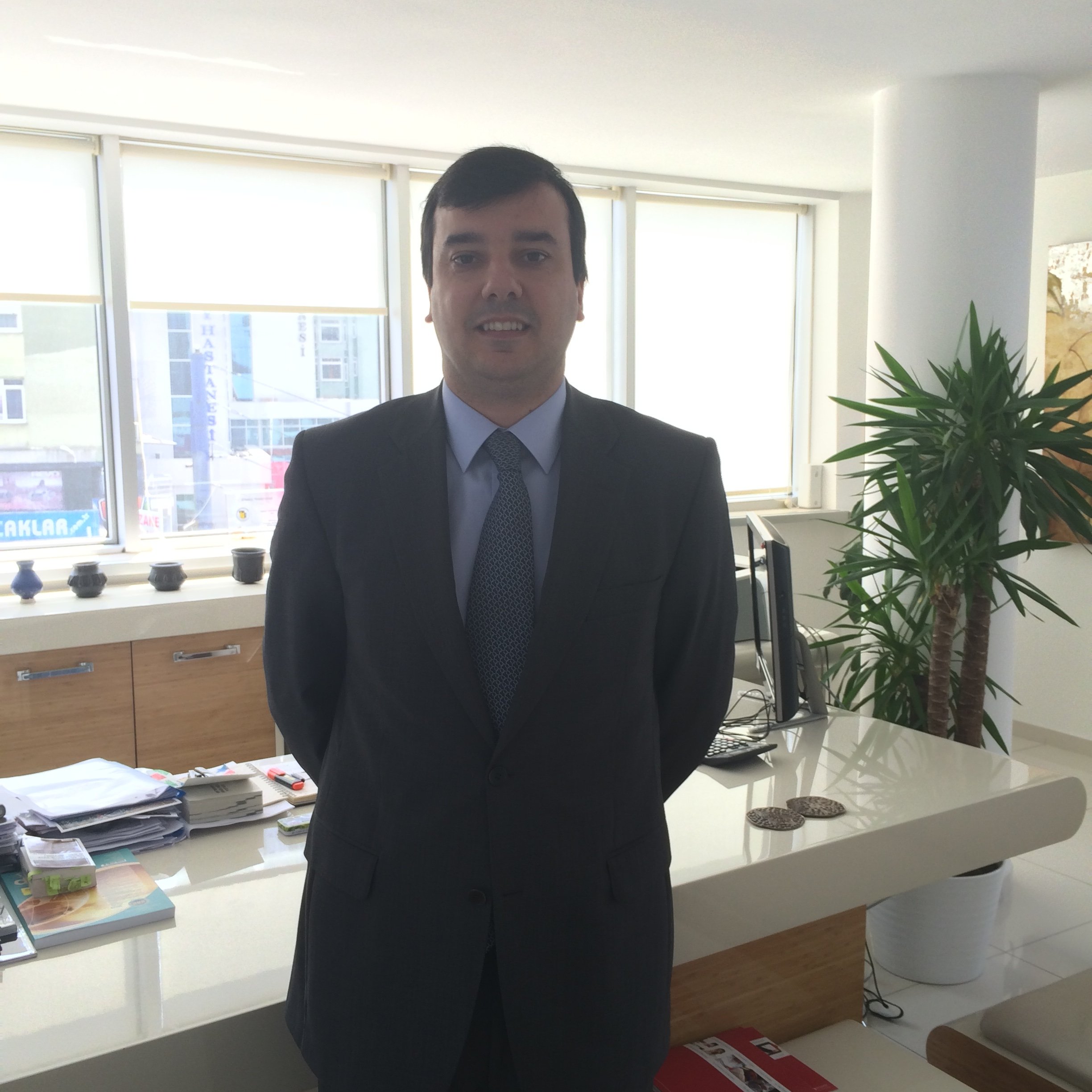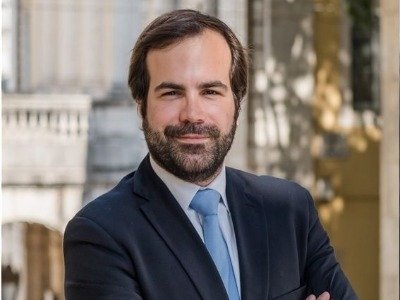From San Sebastián to Turkey

Martínez Echevarría & Rivera Abogados opens us the doors of its offices in Turkey with the help of its managing partner, Juan Antonio Viñuales. This lawyer of Basque origin, who initially thought to spend only two years in this post, ended up making his life in Turkey and has been there for more than fifteen years. In this interview, Viñuales tells us about the pros and cons of practising Law in this country where the firm mainly represents Spanish or Spanish-speaking companies in Turkey in the Commercial, Labour and Litigation fields. In addition, only the Real Estate area represents 25 per cent of ME&R-Turkey’s turnover with clients mainly from Northern Europe and Asia. In general terms, even though he misses certain things about Spain, Viñuales recommends the experience to anyone starting his career.
From San Sebastián to Turkey, where you have been managing partner of the Martínez-Echevarría & Rivera Abogados offices for more than fifteen years. How has this experience been on a personal and professional level?
Overall, very positive, both personally and professionally. Personally, six months after arriving in Turkey, I met the woman who is my wife today, a Turkish lawyer from Istanbul and who also ended up joining the firm. Professionally, my initial agreement with the firm was for two years, leaving the office operational and returning to Spain. And as you say, it ́s been now 15 years… Being able to live the profession as a lawyer abroad, although it has certain limitations from the technical point of view, due to the initial ignorance of the language and the legislation of the new country, it also has advantages, such as working side by side with local colleagues, which provide a broader scope, know the operation of a different legal system, which you can then transfer to the client with the perspective of both countries, which is something they really appreciate.
Turkey’s situation is quite tense in the international context, especially with regard to the European Union, from which it seems it has become quite distant in recent years. Does this situation affect Law practice?
Indeed, unfortunately, in recent years, the relationship between Turkey and the European Union has become very distant, especially due to the migration issue and border tensions with an EU member country such as Greece. However, I do not see that this has affected the Law practice, but it has affected trade relations and especially the possible accession of Turkey to the EU, which is now further away than ever. I want to believe that we still have time to redirect it.
What kind of operations do you carry out in M-E&R offices in Turkey? What sectors are the main ones at the business/investment level?
The firm in Turkey mainly represents Spanish companies or Spanish-speaking companies in Turkey in the Commercial field, and also in the Labour and Litigation field. Hotel companies such as the Barceló Group or the Hotusa Group, which are now seriously suffering the consequences of the pandemic, companies in the industrial sector such as Acerinox or Fagor, engineering companies such as Ineco, banking representation offices such as Banco Sabadell or La Caixa and a long etcetera of small and medium-sized companies that are in the process of expansion. We also have a Real Estate department that represents almost 25 per cent of the turnover of the Turkish headquarters, with clients mainly from Northern Europe and Asia. Renewable energies have also experienced strong progress in Turkey, with hydroelectric power having the most weight, followed by wind and solar. And with an ambitious program so that two-thirds of the energy produced in 2023 in Turkey comes from renewable energy. This same year, the Wec Group, a cast components supplier for the wind power market, and which works closely with the Gamesa company, has established a subsidiary in Izmir to manufacture parts in Turkey.
During these years of experience in Turkey, what essential differences have you detected between the practice of Law in Spain and the country where you reside? How do you experience the process of the digital transformation of Justice there?
It is surprising to see that the digital transformation is more advanced in Turkey than in Spain, with a centralised system for online consultation of judicial files. It works more effectively than in Spain, which also has different systems depending on the Autonomous Community, which makes it even more complicated. The applicable legal system is similar in both Spain and Turkey, both of the Continental Law family, although Turkey has a greater influence of the Germanic system variant, in particular the Swiss system, compared to the Spanish legal system that has a greater influence of the Romanesque or Napoleonic variant, like a good part of the Southern European countries. The biggest drawback is that the courts are saturated, even more than in Spain, and the current circumstances of COVID-19 have only caused a greater saturation of them. Thus, for example, a judicial process in Turkey can last between two and five years on average.
The pandemic has also hit Turkey hard. How are you experiencing this situation, and what is your opinion regarding how this crisis is being managed in Turkey and Spain? How has the pandemic hit the Turkish economy?
Turkey has managed the pandemic differently than Spain and, in my opinion, I think Turkey has done better. First, there has never been a total lockdown during the week, so the economy has been less affected. The confinements have only been carried out during weekends and holidays, on the dates of the greatest expansion of the virus. In addition, at all times they have recommended the use of masks, and in fact, they were distributed free of charge to families who requested them. Their price, in any case, is much lower than in Spain, since the surgical mask, which is the most widespread, costs five euro cents in Turkey, compared to the 90 cents that I understand they cost in Spain.It is true that the numbers of those infected and those deceased due to COVID-19 in Turkey must be taken with some caution and that the number is probably higher than the official figures. But at no time have the hospitals become saturated and also, in general, the Turks have been more responsible with social distance and hygiene measures than the Spanish. In the economic aspect, the consequences of the pandemic remain to be seen, since, like many of the developing countries, the Turkish currency has suffered a strong depreciation, in addition to the one it had already suffered, and inflation is soaring.
The mandatory smart working has “brought us all closer in the distance”. How do you personally experience the sense of belonging to a team from your location in Turkey?
I think this may be one of the few positive lessons from the pandemic. If in recent years, tools such as Skype, Zoom, or WhatsApp, have allowed us to be much more in contact with our customers, our colleagues or our family and friends than in previous times, after COVID-19 these tools and the new that are going to emerge will be much more present in our day-to-day work, saving a significant amount of time. However, I believe that these tools should not be abused either. From my point of view, face-to-face meetings are still sometimes necessary, since an online meeting does not generate the same complicity as a face-to-face meeting, both with clients and with colleagues from the office.
Interview by Desiré Vidal
To read the interview in full please download issue N.98 here












